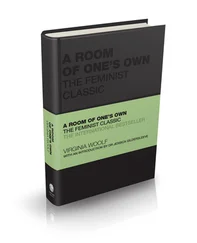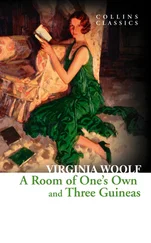Virginia Woolf - Jacob's Room
Здесь есть возможность читать онлайн «Virginia Woolf - Jacob's Room» весь текст электронной книги совершенно бесплатно (целиком полную версию без сокращений). В некоторых случаях можно слушать аудио, скачать через торрент в формате fb2 и присутствует краткое содержание. Жанр: Классическая проза, на английском языке. Описание произведения, (предисловие) а так же отзывы посетителей доступны на портале библиотеки ЛибКат.
- Название:Jacob's Room
- Автор:
- Жанр:
- Год:неизвестен
- ISBN:нет данных
- Рейтинг книги:3 / 5. Голосов: 1
-
Избранное:Добавить в избранное
- Отзывы:
-
Ваша оценка:
- 60
- 1
- 2
- 3
- 4
- 5
Jacob's Room: краткое содержание, описание и аннотация
Предлагаем к чтению аннотацию, описание, краткое содержание или предисловие (зависит от того, что написал сам автор книги «Jacob's Room»). Если вы не нашли необходимую информацию о книге — напишите в комментариях, мы постараемся отыскать её.
Jacob's Room — читать онлайн бесплатно полную книгу (весь текст) целиком
Ниже представлен текст книги, разбитый по страницам. Система сохранения места последней прочитанной страницы, позволяет с удобством читать онлайн бесплатно книгу «Jacob's Room», без необходимости каждый раз заново искать на чём Вы остановились. Поставьте закладку, и сможете в любой момент перейти на страницу, на которой закончили чтение.
Интервал:
Закладка:
Then two thousand hearts in the semi-darkness remembered, anticipated, travelled dark labyrinths; and Clara Durrant said farewell to Jacob Flanders, and tasted the sweetness of death in effigy; and Mrs. Durrant, sitting behind her in the dark of the box, sighed her sharp sigh; and Mr. Wortley, shifting his position behind the Italian Ambassador's wife, thought that Brangaena was a trifle hoarse; and suspended in the gallery many feet above their heads, Edward Whittaker surreptitiously held a torch to his miniature score; and... and...
In short, the observer is choked with observations. Only to prevent us from being submerged by chaos, nature and society between them have arranged a system of classification which is simplicity itself; stalls, boxes, amphitheatre, gallery. The moulds are filled nightly. There is no need to distinguish details. But the difficulty remains-one has to choose. For though I have no wish to be Queen of England or only for a moment-I would willingly sit beside her; I would hear the Prime Minister's gossip; the countess whisper, and share her memories of halls and gardens; the massive fronts of the respectable conceal after all their secret code; or why so impermeable? And then, doffing one's own headpiece, how strange to assume for a moment some one's-any one's-to be a man of valour who has ruled the Empire; to refer while Brangaena sings to the fragments of Sophocles, or see in a flash, as the shepherd pipes his tune, bridges and aqueducts. But no-we must choose. Never was there a harsher necessity! or one which entails greater pain, more certain disaster; for wherever I seat myself, I die in exile: Whittaker in his lodging-house; Lady Charles at the Manor.
A young man with a Wellington nose, who had occupied a seven-and-sixpenny seat, made his way down the stone stairs when the opera ended, as if he were still set a little apart from his fellows by the influence of the music.
At midnight Jacob Flanders heard a rap on his door.
"By Jove!" he exclaimed. "You're the very man I want!" and without more ado they discovered the lines which he had been seeking all day; only they come not in Virgil, but in Lucretius.
"Yes; that should make him sit up," said Bonamy, as Jacob stopped reading. Jacob was excited. It was the first time he had read his essay aloud.
"Damned swine!" he said, rather too extravagantly; but the praise had gone to his head. Professor Bulteel, of Leeds, had issued an edition of Wycherley without stating that he had left out, disembowelled, or indicated only by asterisks, several indecent words and some indecent phrases. An outrage, Jacob said; a breach of faith; sheer prudery; token of a lewd mind and a disgusting nature. Aristophanes and Shakespeare were cited. Modern life was repudiated. Great play was made with the professional title, and Leeds as a seat of learning was laughed to scorn. And the extraordinary thing was that these young men were perfectly right-extraordinary, because, even as Jacob copied his pages, he knew that no one would ever print them; and sure enough back they came from the Fortnightly, the Contemporary, the Nineteenth Century-when Jacob threw them into the black wooden box where he kept his mother's letters, his old flannel trousers, and a note or two with the Cornish postmark. The lid shut upon the truth.
This black wooden box, upon which his name was still legible in white paint, stood between the long windows of the sitting-room. The street ran beneath. No doubt the bedroom was behind. The furniture-three wicker chairs and a gate-legged table-came from Cambridge. These houses (Mrs. Garfit's daughter, Mrs. Whitehorn, was the landlady of this one) were built, say, a hundred and fifty years ago. The rooms are shapely, the ceilings high; over the doorway a rose, or a ram's skull, is carved in the wood. The eighteenth century has its distinction. Even the panels, painted in raspberry-coloured paint, have their distinction...
"Distinction"-Mrs. Durrant said that Jacob Flanders was "distinguished-looking." "Extremely awkward," she said, "but so distinguished-looking." Seeing him for the first time that no doubt is the word for him. Lying back in his chair, taking his pipe from his lips, and saying to Bonamy: "About this opera now" (for they had done with indecency). "This fellow Wagner"... distinction was one of the words to use naturally, though, from looking at him, one would have found it difficult to say which seat in the opera house was his, stalls, gallery, or dress circle. A writer? He lacked self-consciousness. A painter? There was something in the shape of his hands (he was descended on his mother's side from a family of the greatest antiquity and deepest obscurity) which indicated taste. Then his mouth-but surely, of all futile occupations this of cataloguing features is the worst. One word is sufficient. But if one cannot find it?
"I like Jacob Flanders," wrote Clara Durrant in her diary. "He is so unworldly. He gives himself no airs, and one can say what one likes to him, though he's frightening because..." But Mr. Letts allows little space in his shilling diaries. Clara was not the one to encroach upon Wednesday. Humblest, most candid of women! "No, no, no," she sighed, standing at the greenhouse door, "don't break-don't spoil"-what? Something infinitely wonderful.
But then, this is only a young woman's language, one, too, who loves, or refrains from loving. She wished the moment to continue for ever precisely as it was that July morning. And moments don't. Now, for instance, Jacob was telling a story about some walking tour he'd taken, and the inn was called "The Foaming Pot," which, considering the landlady's name... They shouted with laughter. The joke was indecent.
Then Julia Eliot said "the silent young man," and as she dined with Prime Ministers, no doubt she meant: "If he is going to get on in the world, he will have to find his tongue."
Timothy Durrant never made any comment at all.
The housemaid found herself very liberally rewarded.
Mr. Sopwith's opinion was as sentimental as Clara's, though far more skilfully expressed.
Betty Flanders was romantic about Archer and tender about John; she was unreasonably irritated by Jacob's clumsiness in the house.
Captain Barfoot liked him best of the boys; but as for saying why...
It seems then that men and women are equally at fault. It seems that a profound, impartial, and absolutely just opinion of our fellow-creatures is utterly unknown. Either we are men, or we are women. Either we are cold, or we are sentimental. Either we are young, or growing old. In any case life is but a procession of shadows, and God knows why it is that we embrace them so eagerly, and see them depart with such anguish, being shadows. And why, if this-and much more than this is true, why are we yet surprised in the window corner by a sudden vision that the young man in the chair is of all things in the world the most real, the most solid, the best known to us-why indeed? For the moment after we know nothing about him.
Such is the manner of our seeing. Such the conditions of our love.
("I'm twenty-two. It's nearly the end of October. Life is thoroughly pleasant, although unfortunately there are a great number of fools about. One must apply oneself to something or other-God knows what. Everything is really very jolly-except getting up in the morning and wearing a tail coat.")
"I say, Bonamy, what about Beethoven?"
("Bonamy is an amazing fellow. He knows practically everything-not more about English literature than I do-but then he's read all those Frenchmen.")
"I rather suspect you're talking rot, Bonamy. In spite of what you say, poor old Tennyson..."
("The truth is one ought to have been taught French. Now, I suppose, old Barfoot is talking to my mother. That's an odd affair to be sure. But I can't see Bonamy down there. Damn London!") for the market carts were lumbering down the street.
Читать дальшеИнтервал:
Закладка:
Похожие книги на «Jacob's Room»
Представляем Вашему вниманию похожие книги на «Jacob's Room» списком для выбора. Мы отобрали схожую по названию и смыслу литературу в надежде предоставить читателям больше вариантов отыскать новые, интересные, ещё непрочитанные произведения.
Обсуждение, отзывы о книге «Jacob's Room» и просто собственные мнения читателей. Оставьте ваши комментарии, напишите, что Вы думаете о произведении, его смысле или главных героях. Укажите что конкретно понравилось, а что нет, и почему Вы так считаете.











